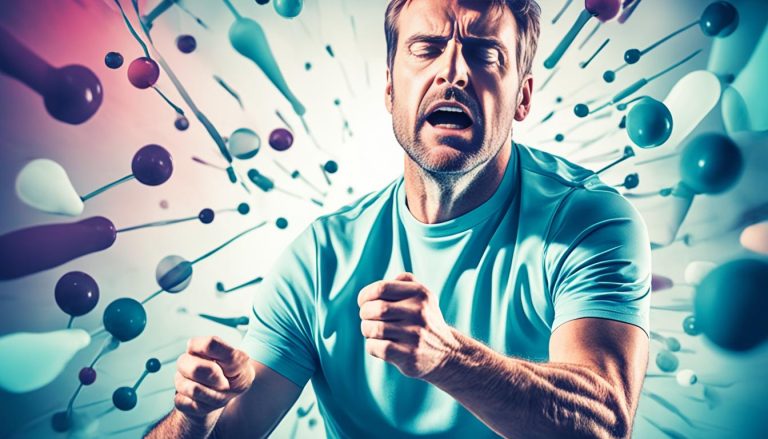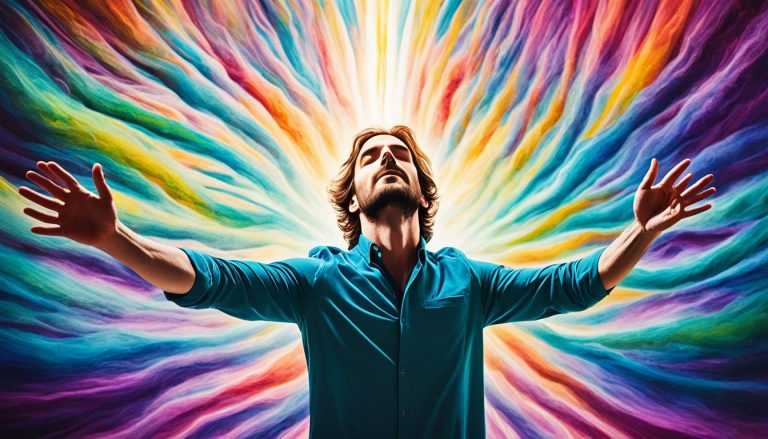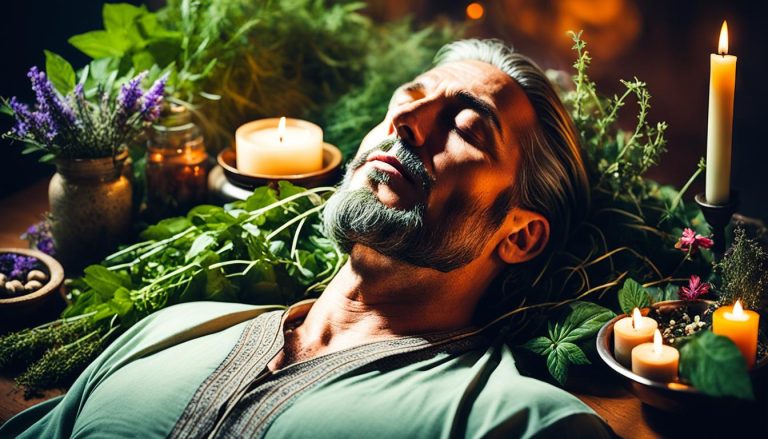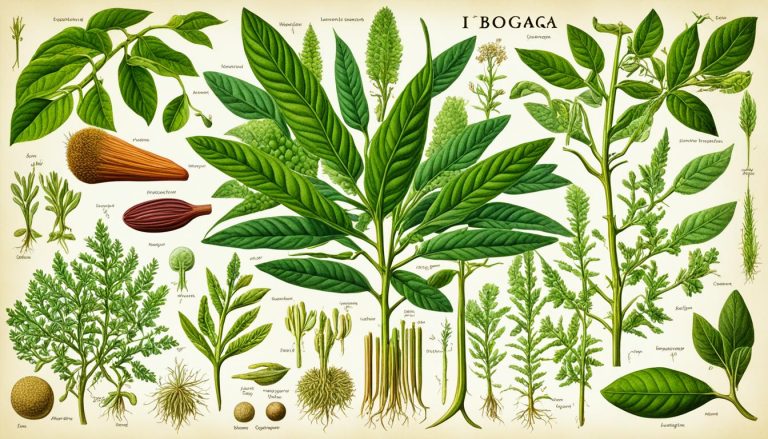What Does Ibogaine Feel Like?
Embarking on an ibogaine journey is to step into a territory of transformation; Exploring the sensations of ibogaine, individuals often go beyond the mere effects of ibogaine and enter into an immersive realm, marked by profound psychological revelations and emotive clarity. From the vivid ibogaine trip reports that have emerged, one can discern a common thread—the ibogaine experience is as intense as it is introspective, catering to a deep communion with the innermost self.
Forged from the root bark of the Tabernanthe Iboga plant, this natural hallucinogen has been a beacon of hope for those grappling with the tendrils of addiction. Through a journey characterized by dreamlike visions and an acute sense of self-connectivity, individuals describe a sensation akin to their addiction physically departing their being. This is more than a pharmacological interaction; it’s a spiritual awakening that promises cognitive development and existential realignment for those who venture forth.
Key Takeaways
- The ibogaine experience offers a deeply personal, introspective journey unlike any other.
- Individuals may encounter both transformative insights and psychological confrontations.
- Sensations during the ibogaine trip can include vivid visualizations and emotional purging.
- A sense of spiritual awakening is often reported, facilitating personal growth and healing.
- Each ibogaine trip is unique, reflecting the personal history and psyche of the individual.
- This experience can be key in decisively addressing patterns of addiction and past traumas.
- Open-mindedness and readiness are essential for those considering ibogaine treatment.
The Origins and Uses of Ibogaine
The ibogaine psychedelic experience has its roots in the heart of West Africa, where the iboga tree has been revered as a conduit to the spiritual realm. For generations, the Bwiti religion in Gabon has held the iboga tree and its potent psychoactive effects in high regard, using it in rites of passage and healing ceremonies. This complex tradition speaks to the deep connection between the plant and cultural identity, illustrating where does ibogaine come from both geographically and historically.
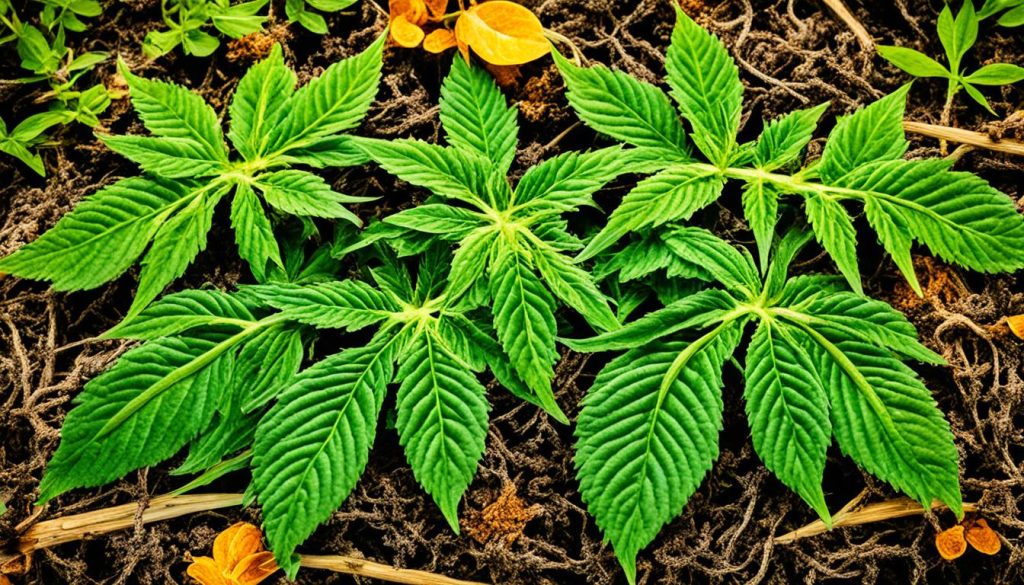
While the ibogaine psychoactive effects were once confined to spiritual exploration, they are now being explored for the treatment of substance dependence. This transition from sacrament to scientific interest has opened new doors in understanding addiction. Today, ibogaine is recognized not only for its ability to facilitate a profound journey through the psyche but also for its potential in reducing withdrawal symptoms and the relentless grip of cravings.
Ibogaine’s multifaceted nature makes it more than just an alternative treatment; it’s a beacon of hope for those seeking to break the chains of addiction. Its application stands as a symbol of the broader search for breakthroughs in healing and personal transformation.
In spite of its promising applications, ibogaine’s journey into mainstream treatment options remains in its infancy. Regulatory bodies have yet to fully embrace its use, and thus, it is often sought after by those venturing beyond traditional avenues to find solace from their afflictions. Nevertheless, the burgeoning interest from researchers dedicated to unraveling the mysteries of ibogaine psychoactive effects signals a future where this ancient substance may offer modern resolutions to some of today’s most challenging health concerns.
What Does Ibogaine Feel Like?
Embarking on an ibogaine journey transports individuals into a realm distinct from what they may have encountered with other therapeutic psychedelics. This unique experience encompasses a blend of profound physical sensations and emotional introspection, marked by a psychoactive voyage that is as revelatory as it is intense.
Physical Sensations During an Ibogaine Trip
For many, the onset of ibogaine hallucinations brings forth a symphony of physical reactions. From the disorienting beginnings of dizziness and a heavy sensation that anchors the body to the earth, to the oft-experienced nausea—a natural purgative stage that some users interpret as the visceral release of negativity and toxins. It’s a physical odyssey that many claim leaves them feeling purified and renewed, despite the initial discomfort.
Psychological and Emotional Impacts of Ibogaine
The substance’s powerful ability to unlock the subconscious allows for an ibogaine emotional journey unlike any other. As voyagers traverse this inner landscape, they often uncover layers of the psyche previously unexamined. The experience has been described as a lucid dream, where one faces the narratives and core beliefs driving their very existence—potentially leading to pivotal moments of self-realization and emotional healing.
“Ibogaine provides a therapeutic psychonautical exploration that can dismantle the fortress of one’s addictive impulses and emotional trepidations.”
Comparing Ibogaine to Other Psychedelics
In the realm of psychedelic substances, ibogaine stands in stark contrast to others such as LSD or psilocybin. While comparisons may be drawn in their shared propensity for altering perceptions and fostering deep personal insights, ibogaine steers clear of stimulating interactions with the user’s surroundings. Instead, it demands an inward-focused, solitary experience—promoting self-reflection rather than sensory exploration. This intrinsic quality makes it a unique tool among other psychedelics, often forging paths to recovery that were hitherto unseen or unfelt.
Evaluating Clinical Trials and User Reports
Deciphering the wealth of data from clinical trials ibogaine research and the abundant ibogaine trip reports provides a compelling glimpse into the potential of this substance for treating addiction. The pioneering clinical trials initiated on the Caribbean island of St. Kitts in the 1990s laid the groundwork for understanding ibogaine’s unique impact on opioid dependence. These studies, bolstered by the first-hand accounts of users, emphasize not only the substance’s ability to notably decrease withdrawal symptoms and cravings but also the resilience required to undergo such a transformative experience.
The real-world effectiveness of ibogaine, as manifested in various individual narratives and ibogaine trip reports, offers a humanized perspective that complements the clinical data. Narratives often delve into the deeply personal and sometimes tumultuous journey of recovery, entailing both psychological and physical challenges that demand a high level of endurance from the participant.
Displaying a dramatic reduction in the need for opioids post-treatment, ibogaine emerges as a potentially disruptive force in the realm of addiction therapy. The convergence of scientifically controlled research and the profound testimonials of those who’ve embarked on the ibogaine path affirms its place as a topic of increasing interest within the medical community.
Ultimately, the scrutiny of these two sources—meticulous scientific studies alongside robust, emotionally charged personal reports—provides compelling evidence of ibogaine’s effect. They point towards a remarkably different approach to confronting and potentially overcoming the shackles of addiction.
The Neuroscience of Ibogaine’s Effects
Delving into the world of addiction treatment, ibogaine emerges as a beacon of hope with its unparalleled ability to recalibrate the brain’s reward system. Traditionally, substance dependency hijacks this system, perpetuating a cycle of addiction. However, ibogaine’s effects on the brain present a path to recovery by intervening in these deeply rooted neurological patterns.
Resetting the Brain’s Reward System
One remarkable aspect of ibogaine’s role in addiction treatment is its potential to reset the brain’s reward system. This process transforms the neurological landscape, heavily influenced by addictive substances. By modulating dopamine uptake, ibogaine provides a unique opportunity for individuals to step away from the compulsion to seek that next euphoric high, effectively laying new groundwork for healthier habits and decision-making.
The Role of Ibogaine in Addiction Treatment
The consideration of ibogaine as a cure for addiction is increasingly gaining traction. Its multifaceted approach not only mitigates the physical withdrawal symptoms but also induces a profound psychospiritual journey that prompts users to confront and comprehend the underlying reasons for their addiction. In conjunction with continuous care, ibogaine assists in paving the way toward sustained recovery and a future free from the shackles of dependency.
Long-Term Psychological Effects of Ibogaine Use
When examining the long-term effects of ibogaine use, it’s essential to recognize the broad spectrum of transformation it incites. Beyond the initial reset, ibogaine may foster enduring psychological changes, enhancing one’s perception of self-worth and life’s purpose. Still, these benefits heavily depend on the presence of a supportive environment and an enduring commitment to change post-ibogaine intervention.
The journey of overcoming addiction is rarely straightforward, yet ibogaine provides a catalytic experience that can be pivotal in chartering a new course in life. Its impact on the brain’s reward pathways marks the beginning of this voyage, offering those entangled in addiction a tangible glimpse of freedom and healing.
Conclusion
In reflecting upon the myriad layers of the ibogaine experience, one can ascertain its complexity and the arduous yet cathartic journey it offers. Summarizing the ibogaine experience is to acknowledge the balance of its physically demanding aspects with the profound psychological introspection and spiritual awakening it facilitates. While certainly not a universal remedy, it does provide a personalized opportunity for individuals grappling with the snares of addiction to encounter their truest selves and engage in comprehensive self-analysis.
Summarizing the Ibogaine Experience
The fabric of the ibogaine experience is woven with intense personal transformation that can lead to significant emotional enlightenment. It stands as a testament to the inherent power of the human mind and body to cleanse, confront, and overcome. Capturing the essence of ibogaine’s impact is to depict a process of deep, reflective introspection, facilitated by a substance that acts less like a traditional drug and more like a key unlocking the psyche, revealing the potential paths towards healing and recovery.
The Future of Ibogaine in Treating Addiction
The future of ibogaine in treating addiction appears promising as it continues to gain empirical support and anecdotal corroboration for its efficacy. The unique proposition of ibogaine lies in its capability to disrupt the chains of addictive behavior by resetting neurological pathways linked to these patterns. As research progresses and greater understanding is achieved, ibogaine may become a cornerstone in addiction therapy, revolutionizing the landscape with its non-conventional approach that challenges and augments contemporary treatment methodologies.
FAQ
What does ibogaine feel like?
The sensations of ibogaine can be intense and deeply introspective. Individuals report dreamlike visualizations, a heightened sense of inward focus, and a profound emotional journey, often revisiting past traumas and gaining insights into their behaviors and patterns, including those related to addiction.
Where does ibogaine come from?
Ibogaine is a natural hallucinogen derived from the root bark of the Tabernanthe Iboga plant, indigenous to West Africa. It has a long history of use in spiritual practices, especially within the Bwiti religion of Gabon, and has become more widely known for its potential in treating addiction.
What are the physical sensations during an ibogaine trip?
The initial physical sensations can include dizziness, nausea, and sometimes vomiting. As the experience progresses, people report a sensation of their addiction or toxins being expelled from their body, often while lying down in a state that straddles wakefulness and dreaming.
What are the psychological and emotional impacts of ibogaine?
Psychologically, ibogaine promotes deep introspection, allowing users to confront and reevaluate life events, behavioral patterns, and psychological wounds. The emotional journey often includes confronting past traumas, understanding the roots of addictive behavior, and facing negative emotions associated with these issues.
How does ibogaine compare to other psychedelics like LSD or psilocybin?
Ibogaine is inwardly focused and does not typically encourage interaction with external stimuli, distinguishing it from other psychedelics like LSD or psilocybin, which often result in more externally directed experiences. Ibogaine’s effects are deeply introspective and are notably utilized in isolated settings to enhance the inward journey.
What have clinical trials and user reports shown about ibogaine’s effectiveness?
Clinical trials and user reports indicate that ibogaine can significantly reduce withdrawal symptoms and cravings, particularly in opioid addiction. These sources support the notion of its efficacy in providing immediate relief and promoting a psychological environment conducive to long-term recovery.
How does ibogaine reset the brain’s reward system?
Ibogaine has a unique mechanism of action that affects the brain’s dopamine uptake pathways, which are integral in addiction’s reward and pleasure centers. By interrupting these pathways, ibogaine offers a neurological ‘pause,’ allowing for a period of mental recalibration and the potential to establish new behaviors free from the previous addictive cycles.
What is the role of ibogaine in addiction treatment?
Ibogaine is recognized for its dual role in addiction treatment: it rapidly blocks severe withdrawal symptoms and facilitates a psychospiritual experience that provides insight into the root causes of an individual’s addiction. This serves as part of a comprehensive treatment plan that should include ongoing therapy and support.
What are the long-term psychological effects of ibogaine use?
Users may experience sustained freedom from substance cravings and improved outlook on life. The success of long-term recovery is dependent on post-treatment support and the user’s commitment to maintenance, with the months following ibogaine treatment offering a valuable opportunity to develop healthier life patterns.
How does ibogaine experience summarize and what is its future in treating addiction?
Summarizing the ibogaine experience reveals it as a complex, challenging journey with the potential for significant personal transformation. Its future in addiction treatment looks promising, particularly if its capabilities are integrated with comprehensive care and supported by further research into its neurological effects and therapeutic potential.




